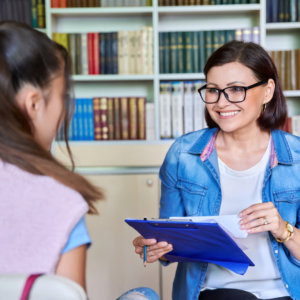While the physical health effects of COVID-19 are serious and severe, the virus is also having impacts on our mental health and wellbeing. While it’s understandable for us to be anxious and concerned about the virus and the rippling effects it’s having on our daily lives, there are resources to help us deal with this crisis.
And for those who already have mental health conditions as well as those who are at risk of developing them – we want to help with information and resources to help you cope with this increased stress and anxiety.
Tips to help your mental health:
- Keep the routines that make you feel good, and try to modify the ones that you can. For example, if you typically go to the gym or fitness class, exercise at home, go biking or go for walk or run. Some local gyms are offering online classes as well.
- Reach out to friends and family via phone, email, text messaging and social media.
- Talk “face to face” with friends and loved ones using Skype or FaceTime.
- Reach out to friends and schedule virtual hangouts.
- Take breaks from watching, reading, or listening to news stories, including social media.
- Take deep breaths, stretch, or meditate.
- Try to eat healthy, well-balanced meals, exercise regularly, get plenty of sleep, and avoid alcohol and drugs.
- Download an e-book reading app and get free ebooks from your public library to keep your mind active.
- If you have a therapist, see if they offer telephone or video-based sessions like our Telehealth services.
Tips to support your child:
- Take time to talk with your child or teen about the COVID-19 outbreak. Answer questions and share facts about COVID-19 in a way that your child or teen can understand, and let them know you will keep them informed as you learn more.
- Reassure your child or teen that they are safe. Let them know it is ok if they feel upset.
- Share with them how you deal with your own stress so that they can learn how to cope from you.
- Limit your family’s exposure to news coverage of the event, including social media. Children may misinterpret what they hear and can be frightened about something they do not understand.
- Try to keep up with regular routines. If schools are closed, create a schedule for learning activities and relaxing or fun activities.
- Be a role model. Take breaks, get plenty of sleep, exercise, and eat well.
- Focus on what you’re doing to stay safe. An important way to reassure kids is to emphasize the safety precautions you are taking, reminding them to wash their hands.
- Take advantage of educational virtual tours and free learning resources available.
What we are experiencing with COVID-19 is unprecedented. Anxiety is a natural outcome, but there are resources that can help.
Reach out. Stay connected.
Be good to yourself too, especially if you have loved ones to care for. They need you to remain healthy. Here are valuable resources to help you and your loved ones.
Resources for those with Mental Health Issues
living-mental-illness-during-covid-19-outbreak-preparing-your-wellness
COVID-19: Potential Implications for Individuals with Substance Use Disorders
Core Recovery Telehealth Line
Resources for Parents
Scholastic Learn at Home Free Resources
Smithsonian Distance Learning Resources
Virtual Field Trips from Discovery Education
Free Learning Resources from Lakeshore Learning Materials
Resources for those in Immediate Crisis
Disaster Distress Helpline
Dial 2-1-1 For assistance finding food, paying for housing bills, accessing free childcare, or other essential services.
Resources to Connect with Others
Social Support: Getting And Staying Connected
MHA’s Inspire Community






 In CA By O360®
In CA By O360®